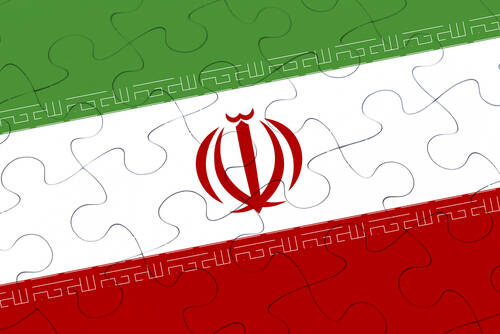The United States maintains a number of important strategic relationships—Israel, China and Russia come immediately to mind—that have the potential to make a significant impact on the current geopolitical landscape. But perhaps the most important relationship the United States maintains, the one likeliest to have the greatest short- and long-term impact on global peace, is with Iran. That is not to say that it is a positive relationship—yet. But even a “relationship” based on animus and suspicion can be important. A Venn diagram of the geopolitical world seen through American and Iranian eyes would show overlapping cultural, political and military interests in Syria, Israel/Palestine, Afghanistan, Iraq, Lebanon and multilateral concerns such as nuclear proliferation, reducing tensions with the world’s Sunni Muslims and converging economic and trade interests and conflicts.
Iran and the United States have been at odds since the Islamic revolution deposed the C.I.A.-backed shah, and the ensuing hostage crisis wrecked the Carter presidency and any chance for the normalization of relations for decades. The United States and Iran have been at loggerheads over Israel and the plight of Palestinians, nuclear weapons development and military and industrial espionage. A historic low was reached during the Iraq-Iran war, when the United States began what would become its disastrous “enemy of my enemy is my friend” alliance with Saddam Hussein. Now the two powers once again find themselves on different sides in Syria. The United States is backing Syrian rebels, many of whom hold near genocidal ambitions for the Iranian-supported Alawites and not much more regard for Syria’s significant Christian minority, and Iran is supporting the tyrant Bashar al-Assad.
A détente between Iran and the United States would offer welcome global breathing space on a variety of tense standoffs, but a respectful engagement with Iran could mean significant progress on a gamut of issues that have troubled the region and beyond. With Iranian cooperation, the United States could see a breakthrough on peace in the Middle East and moderation among Iranian surrogates in Lebanon and the Gaza Strip. Iran could also contribute to reducing the violence in Iraq and tension at flashpoints like the Persian Gulf, where the U.S. Navy and the Iranian Revolutionary Guards play regular games of speed-boat chicken. Instead of using Syria as a proxy battleground, by working together the two powers could pressure both sides in this vicious civil war to a negotiating table. But before they can get Syria’s warring factions to talk, Iran and the United States need to figure out how to speak together themselves.
On better terms with Iran, the United States could serve a role as bridgemaker with Saudi Arabia and other Arab states now most hostile to Iran and perhaps even help diminish the historical and increasingly dangerous tensions between the Sunni and Shiite Muslim worlds. But perhaps the most important reason for a change of tack regarding Iran is the likely endpoint of the perilous course the two nations have already taken, a clash of arms that neither side can afford. As it finally extracts itself from interventions in Afghanistan and Iraq that have cost the nation dearly in life, treasure and esteem, the last thing the United States needs is to be drawn into yet another conflict in the Middle East. Increasingly isolated, struggling under relentless U.S./U.N. sanctions and confronting a young and increasingly vocal population restless with the pace of social change and economic development, Iran likewise should be seeking opportunities for rapprochement with the United States, not a glorious clash of arms with the “Great Satan.”
The strident Mahmoud Ahmadinejad is gone. In the recent presidential election, Iranians selected the pragmatist Hassan Rouhani, the nation’s most “liberal” conservative, who enjoyed the support of reformers and moderates in Iran. Recent evidence suggests that the Iranians have yet to commit themselves irrevocably to the production of nuclear weapons. The Iranian people are eager for change. Now, but perhaps for only a short time, a window of opportunity for improving relations with Iran is open.
Each March since he was elected, President Obama has issued a call to friendship directly to the people of Iran during the Iranian New Year holiday of Nowruz. This year, noting that Iran’s continuing isolation “isn’t good for the world,” he said, “Just as your forbearers enriched the arts and sciences throughout history, all nations would benefit from the talents and creativity of the Iranian people, especially your young people. Every day that you are cut off from us is a day we’re not working together, building together, innovating together—and building a future of peace and prosperity that is at the heart of this holiday.”
These are fine words. Now the president needs to reach out in a dramatic gesture that will allow the Iranians to join him in making them not only fine but true.








